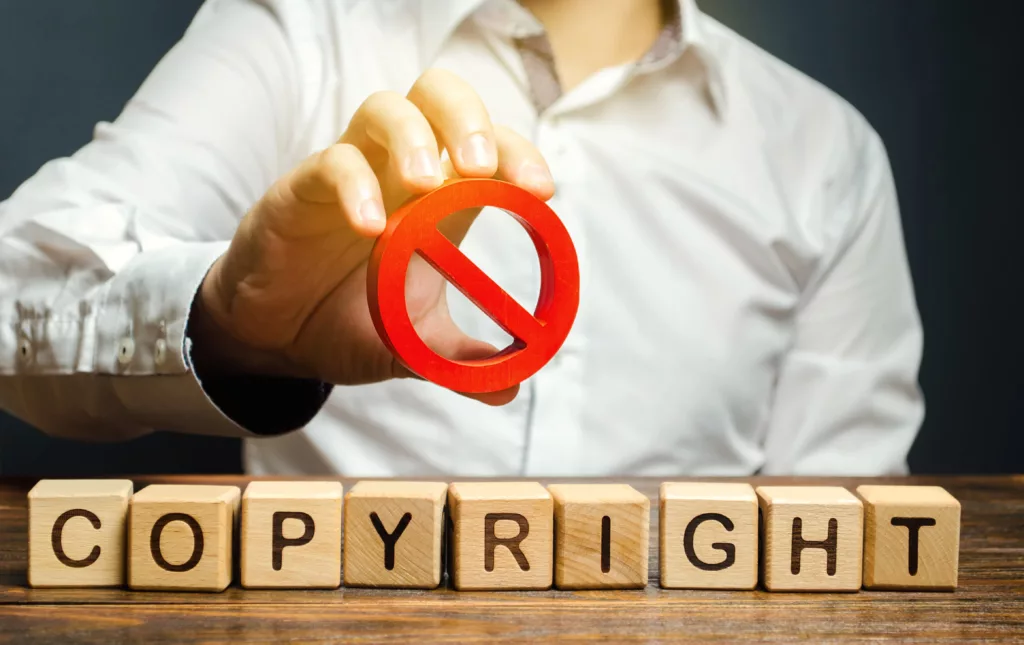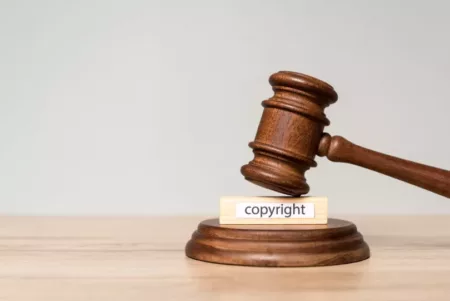Copyright Attorney in Washington DC
High-end signature hand-bag and luggage maker, Louis Vuitton Malletier. Creators of the Barbie doll, Mattel Inc. Naruto, a curious macaque monkey in Indonesia. The Kentucky Fried Chicken recipe. What is it that they all share in common? They all have a lot of cultural weight, and they are all protected in some way by intellectual property law.
They also serve as a reminder of the value of intellectual property law, which encompasses such a broad spectrum of human endeavors and creative work. Intellectual property law is fundamentally about defending these types of assets. Creating intellectual property can take years of hard work and usually requires a lot of money. If all goes as planned, the payoff can be substantial.
It’s important for the person or company making this investment to retain ownership of the property, even if it is just ideas or designs (instead of a tangible product). That is where a Washington, D.C. intellectual property attorney like War IP Law comes in. We have responded to the calling to help people who create and add value to humanity. We have the resources, the drive, and the proven record in helping you register and protect your intellectual property rights.
Call us or stop by to talk to us. We’ll delve deep together to understand what’s truly going on in your case and what strategies you can take.
Why do I need a Copyright attorney in Washington, DC?
 Copyright attorneys serve a number of key responsibilities in intellectual-property protection. In some cases, they function as advocates for clients in court. They also act as advisors for their clients, giving legal advice when it comes to issues related to intellectual property rights.
Copyright attorneys serve a number of key responsibilities in intellectual-property protection. In some cases, they function as advocates for clients in court. They also act as advisors for their clients, giving legal advice when it comes to issues related to intellectual property rights.
IP lawyers on the other hand, often prepare the documents needed to apply for patents or trademarks and then work with patent and trademark offices in the U.S. and other countries to attain those patents and trademarks. Another is to represent a person or group in negotiations with others who are using intellectual property unfairly. This could be as easy as writing a formal letter that says you own the intellectual property and that it can’t be used without permission. Or it could be as complicated as filing a lawsuit and going to court if a settlement can’t be reached.
Additionally, content attorneys help protect businesses and individuals from “IP-bullies,” or brands and businesses that police their rights too aggressively.
What Sets WAR IP LAW, Apart From Other IP Law Firms?
- We are good listeners.
- We explain everything in simple, straightforward, actionable terms.
- We put in long hours for our clients.
- We provide continual support.
- We can provide you with the resources you need to be practically self-sufficient and prosper.
Washington, D.C. IP Attorney, Steven War, is the founder and owner of War IP Law. He is an experienced intellectual property attorney who specializes in drafting opinions, securing and enforcing patents and trademarks, and defending people accused of violating patents and/or trademarks in federal district courts nationwide. He also has experience with Unfair Competition claims under the Lanham Act and a local counsel for the United States District Court for the District of Columbia and the United States District Courts for the Eastern District of Virginia.
Copyright Ownership According to U.S. Copyright Law
Copyright ownership confers six (6) exclusive rights on the copyright holder in an original work of authorship:
- The legal right to copy and reproduce copies of original works;
- The legal right to make derived works from original works;
- The legal right to sell or give copies to the general public through other ways, such as by renting or by lending;
- The legal right to perform the work in public;
- The legal right to show the work publicly, as well as
- The legal right to showcase sound recordings in public via transmission of digital audio.
Architectural blueprints, work that was pantomimed or choreographed, dramatic screenplays, computer programs, graphics, literature, motion pictures, sculptures, and video art are all examples of original works of authorship. These categories are each interpreted widely. Once any of these legal rights is violated in relation to a unique writing work, the rights holder can sue for copyright to protect those rights.
One or more of the six (6) rights, or a part of these rights, can be transferred (assigned), however. Licensing and assignment are two means of transfer. If a transfer is exclusive, it must be in written form and must be signed by the owner of the copyright or by an authorized representative. Nonexclusive rights transfers do not need to be in written form.
Who is the Copyright Owner?
The rights to an original work of authorship are owned by the author. An “author” is generally the one who comes up with the copyrightable statement and puts it into a tangible medium
Some unique works of authorship, however, are “works for hire.” In the simplest situations, this denotes a contract between an employer or commissioning body and the creator under which the employer paid for the work and took on the associated financial risks. The employer, in this case, is the original copyright owner and possesses the six (6) exclusive rights indicated above.
In certain cases, two or more authors collaborate to create a joint or collective work. So, who owns the copyright in that scenario? If there is no express assignment of copyright, the authors of a collaborative work are co-owners of the copyright, assuming that the writers meant to integrate their contributions into an indivisible whole.
Unless otherwise specified in a contract, an author of an individual piece in a collective production, like anthology, retains copyright in his or her own contribution. The editor or compiler of a collection, on the other hand, retains copyright in the part of the work he or she wrote, as well as in the selection and arrangement of the works.
Assignment of Copyright Owner’s Rights
When a copyright owner wants to use a work protected by copyright for commercial gain, the owner often assigns one or more of these rights to the person or entity in charge of bringing the work to market, such as a book or software publisher.
There are several ways to transfer copyright ownership:
- License or assignment? Assignments are a transfer of ownership interest in a copyright, but a license is a grant of merely a portion of the copyright rights.
- Security or mortgage? Copyrights can be mortgaged or used as collateral for a loan. This is uncommon with most copyright owners.
- Death-related transfer. If a copyright holder dies and has a valid will, the copyright is transferred to a chosen beneficiary. If a copyright owner dies without a will, copyright ownership is transferred according to intestate succession rules.
- Involuntary transfer. A court can order the transfer of copyright in some circumstances (for example, bankruptcy, divorce, or mortgage foreclosure).
When transferring copyright, it is typical for a copyright owner to confine the rights being transferred. The owner may, for example, limit the transfer to a specific time period, allow the right to be exercised only in a specific area of the country or world, or demand that the right be exercised only through certain media, like audiotapes, computers, hardcover books, or magazines.
It is called a “license” when only some of the rights that come with the copyright are transferred.
Copyright Licensing According to United States Copyright Law
Creators of original works that are visibly fixed in a medium enjoy a variety of rights under copyright law. The bundle contains the six (6) economic rights of reproduction, derivative works preparation, digitally transmitting sound recordings, distribution, public performance, and public display. If the author’s work is a piece of fine art, the creator enjoys moral rights as well.
Once one of those rights is violated, the rights holder may file a lawsuit to assert those rights. A musician, for example, could sue a movie studio if his song was used in the movie’s soundtrack. The doctrine of first sale states that irrespective of the copyright owner’s exclusive rights, a person who buys a copy of an original work of authorship is allowed to dispose of that copy by displaying it or selling it. However, unless the copies are designated “fair use,” the first sale concept doesn’t protect a person who produces copies that are unauthorized in order to distribute them.
Allowing another individual or party to enjoy one or many of such rights, or perhaps a fraction of any of these rights, may result in the creator of an original work receiving monetary or other benefits in a variety of scenarios. An assignment or a copyright license can be used to transfer rights in a work protected by copyright.
Generally speaking, licenses enable a person who owns the copyright to keep their rights while providing someone else the authority to exercise a part of them, while assignments lead to the copyright owner to lose control of the work. A piece of art’s moral rights can be relinquished; however, they cannot be licensed nor assigned.
Rules for Copyright Licensing
Any transfer of economic rights must be made in written form and bear the signature of the copyright holder. The transfer of a nonexclusive right, however, does not need writing. Although the law on copyright does not mandate payment or any other thing in exchange for granting a license to someone, copyright holders frequently do ask for a payment, set restrictions on the license, or ask the licensee to satisfy some other obligation.
The license will dictate all aspects of the transfer of rights. It will usually specify which of the rights are being licensed, the number of times a work can be used, the extent to which the work can be used, as well as the length of time before the license expires. It will also include any requirements or obligations imposed on the licensee. A copyright holder, for example, may license a work to be distributed solely in a specific geographic region. If the licensee distributes the work in other geographical areas, the copyright holder may sue for infringement and seek an injunction or monetary damages.
Often, the copyright holder authorizes a third-party entity to grant authorization on their behalf. For example, stock picture websites frequently provide rights to users for a modest cost to use a photographer’s stock photo on their website or web magazine.
Contact a Washington, D.C. IP Attorney
If you are in need of legal advice pertaining to intellectual property, look no farther than a Washington, D.C. IP Attorney at War IP Law, PLLC, located in the heart of Washington, DC. We’ll take the time to answer all your questions, and if necessary, we can act right away to protect your IP and defend you against claims of copyright infringement.
Get in touch with us now to schedule an appointment!


